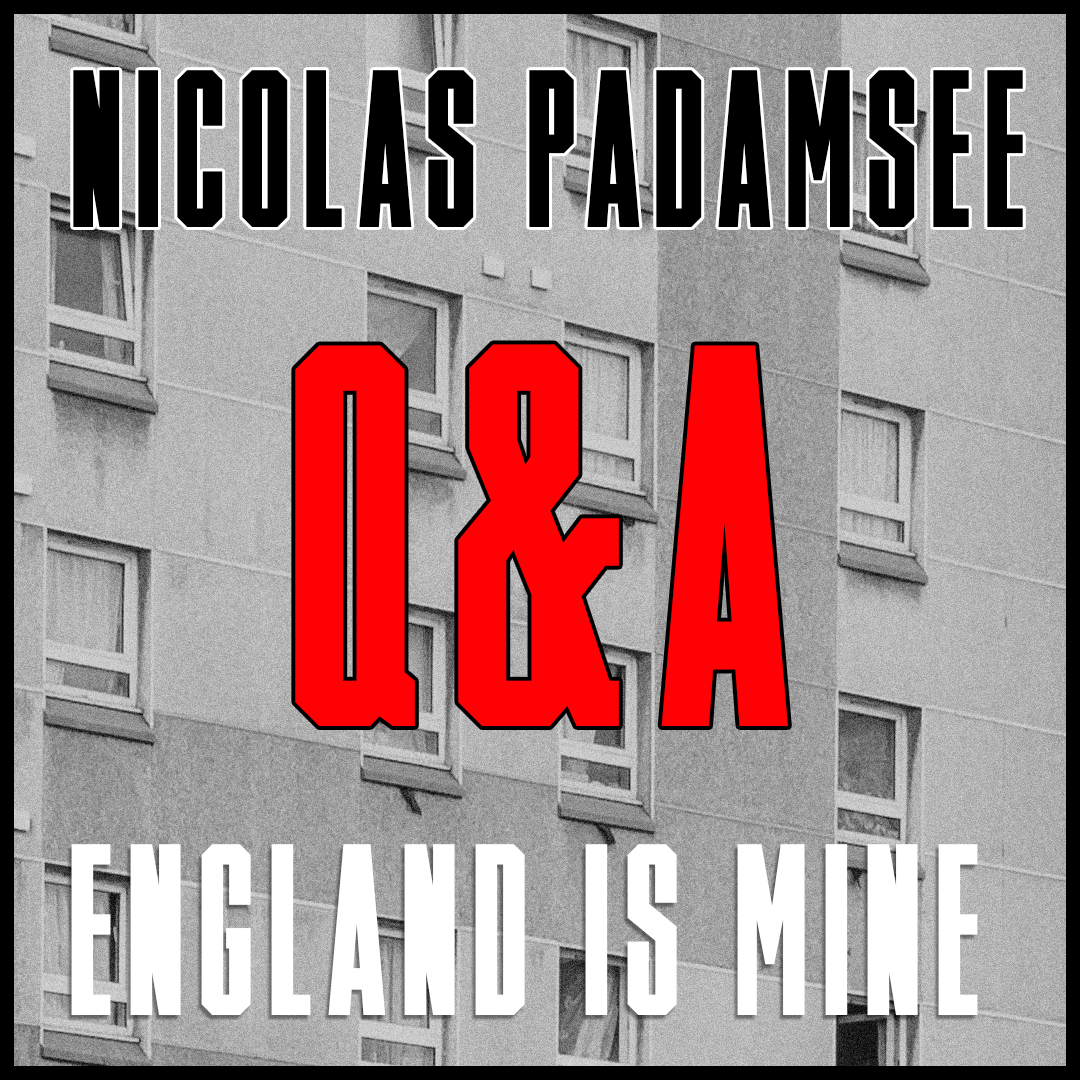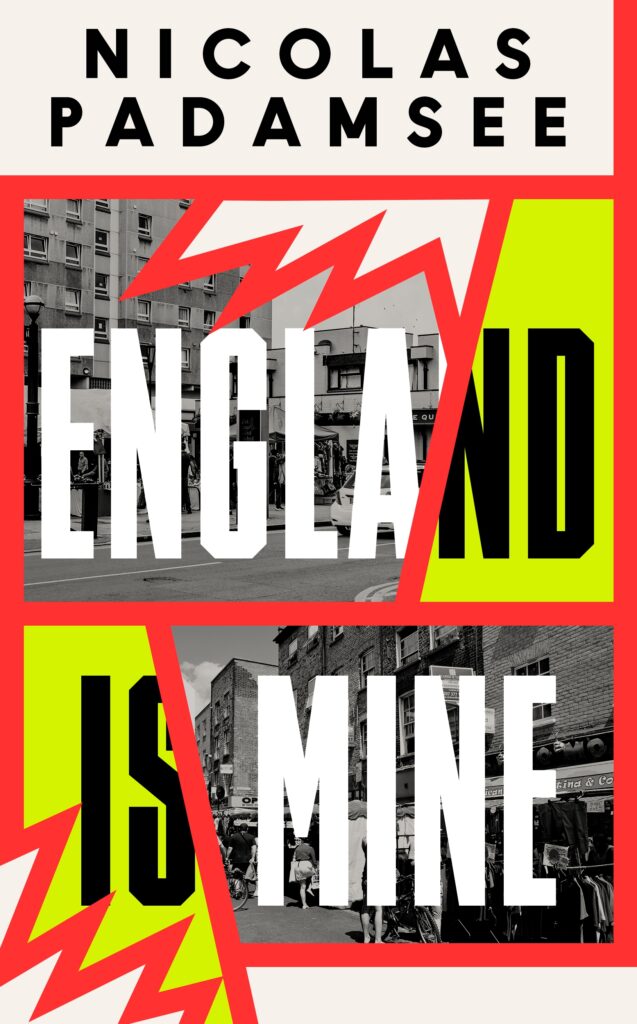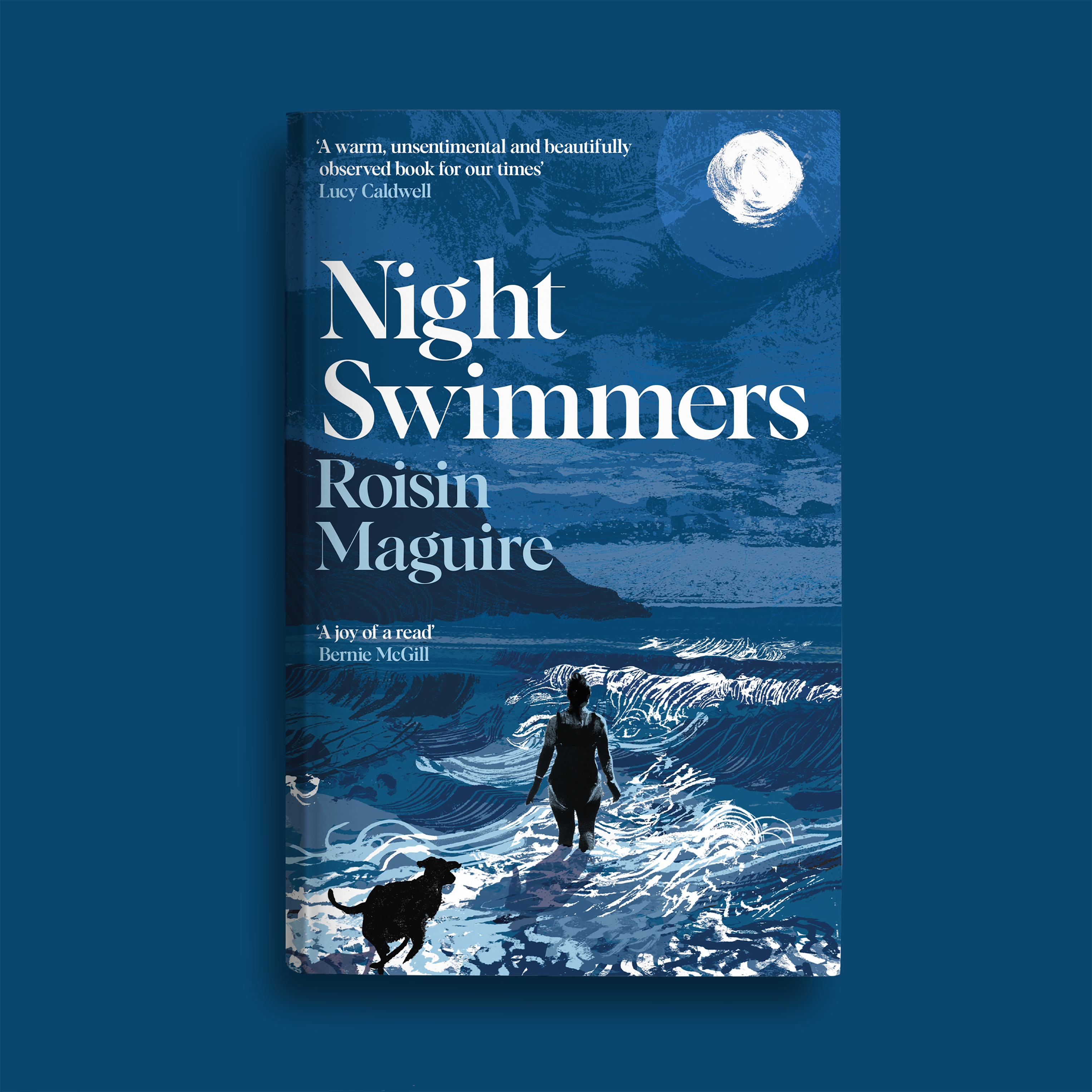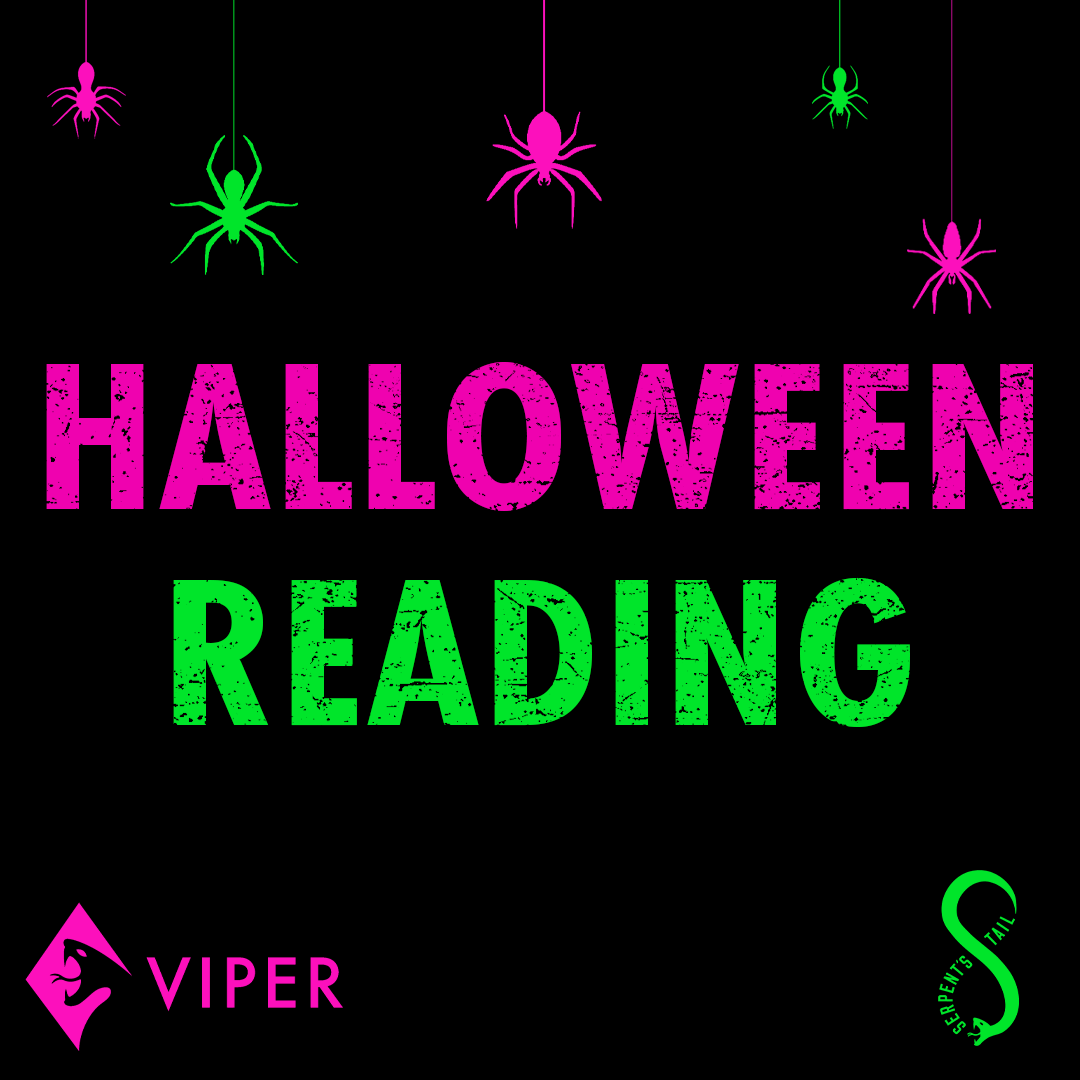

Whether you’re trick-or-treating, carving pumpkins or heading to the big screen/sofa for a deliciously spooky film, no Halloween is complete without the perfect Halloween read to curl up with when the night is done. No matter your genre of choice, whether you’re looking for mind-bending twists, a gothic tale with chilling atmosphere, uncanny and insightful stories, a good mystery from the mists of time, or to be scared out of your wits, we’ve got the seasonal read for you this Halloween.

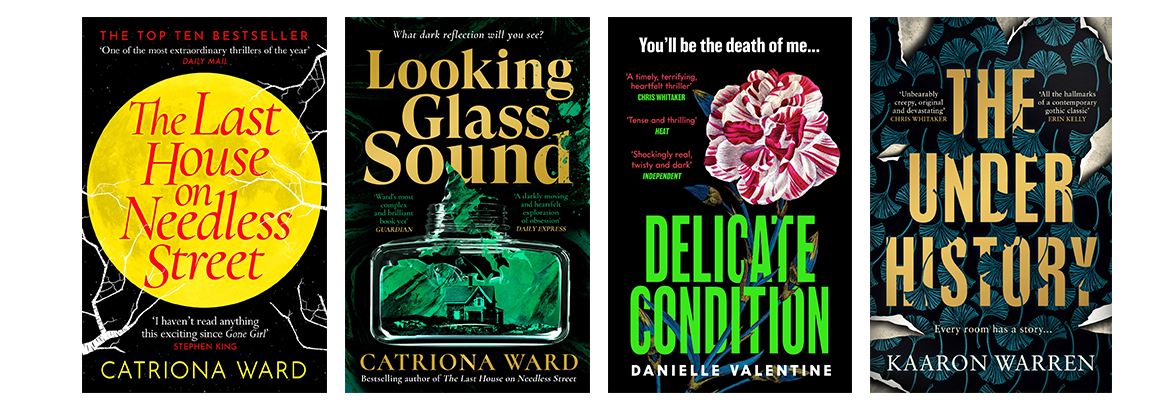
The Last House on Needless Street by Catriona Ward
This is the story of a murderer. A stolen child. Revenge. This is the story of Ted, who lives with his young daughter Lauren and his cat Olivia in an ordinary house at the end of an ordinary street. All these things are true. And yet some of them are lies. ‘I haven’t read anything this exciting since Gone Girl’ Stephen King
Looking Glass Sound by Catriona Ward
In a windswept cottage overlooking the sea, Wilder Harlow begins the last book he will ever write. It is the story of his childhood companions and the shadowy figure of the Daggerman, who stalked their New England town. ‘So beautiful, so dark and so vivid’ Jennifer Saint
Delicate Condition by Danielle Valentine
Anna Alcott is desperate to have a family. When she finally gets pregnant the doctor tells her she’s lost the baby. Despite her grief, Anna ignores them because she can still feel the baby moving, can see the toll it’s taking on her body. Leading her to wonder, what exactly is growing inside her? ‘A timely, terrifying, heartfelt thriller’ Chris Whitacker
The Underhistory by Kaaron Warren

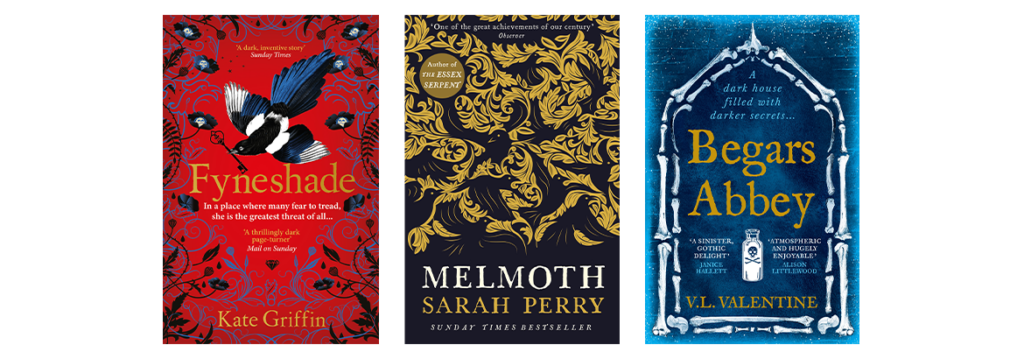
Fyneshade by Kate Griffin
All is not well at Fyneshade, an ancient and crumbling house in the wilds of Derbyshire. When Marta arrives as a governess she is met with silent servants, an abscent owner, and a son forbidden from entering the house. But Marta is no innocent. Guided by the dark gifts taught to her by her grandmother, she has made her own plans. ‘Marta is Jane Eyre’s black-hearted alter ego’ The Times
Melmoth by Sarah Perry
One winter night in Prague, Helen Franklin meets her friend Karel on the street. Agitated and enthralled, he tells her he has come into possession of a mysterious old manuscript, filled with personal testimonies from the 17th to 20th century. All of them tell of being followed by a tall, silent woman in black, bearing an unforgettable message. ‘Perry’s masterly piece of postmodern gothic is one of the great achievements of our century’ The Observer
Begars Abbey by V.L. Valentine
Winter 1954, Sam Cooper discovers a stack of hidden letters in her mother’s things, telling of an inheritance and a family that she never knew she had. Begars Abbey is a crumbling pile, inhabited only by Lady Cooper, Sam’s ailing grandmother. Her grandmother cannot speak, and a shadowy woman moves along the corridors at night… ‘A dark gothic delight’ Janice Hallett

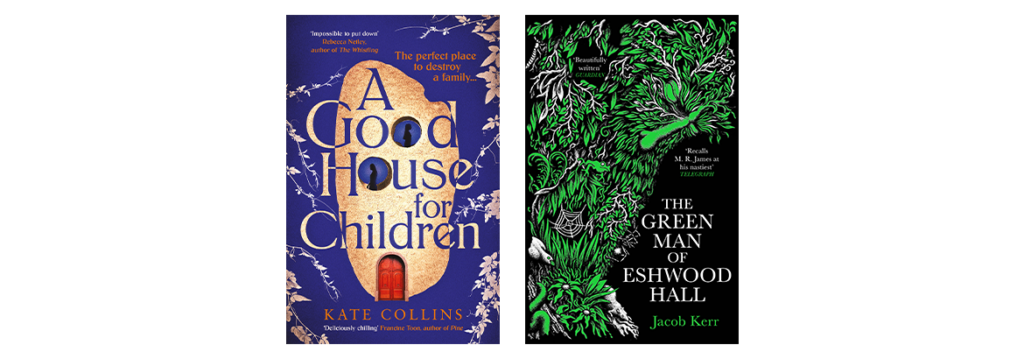
A Good House for Children by Kate Collins
The Reeve stands on the edge of the Dorset cliffs, awaiting its next inhabitants. Two women’s stories, separated by 40 years, tell of a house where nothing is as it seems. The longer they stay in the house, the more deadly certain their need to keep the children safe from whatever lurks inside it… ‘A deliciously chilling atmosphere that fans of Shirley Jackson will love’ Francine Toone
The Green Man of Eshwood Hall by Jacob Kerr
Eshwood Hall is a great English house surrounded by sprawling woods. It is 1962 and Izzy is thirteen, living in the servants’ quarters and finding freedom exploring the forest and the village beyond. The more she explores, the stranger her surroundings become. The most tantalising of which is the Green Man in the woods who seems to know all about her and her deeply buried secrets. ‘Recalls M. R. James at his nastiest’ Daily Telegraphy

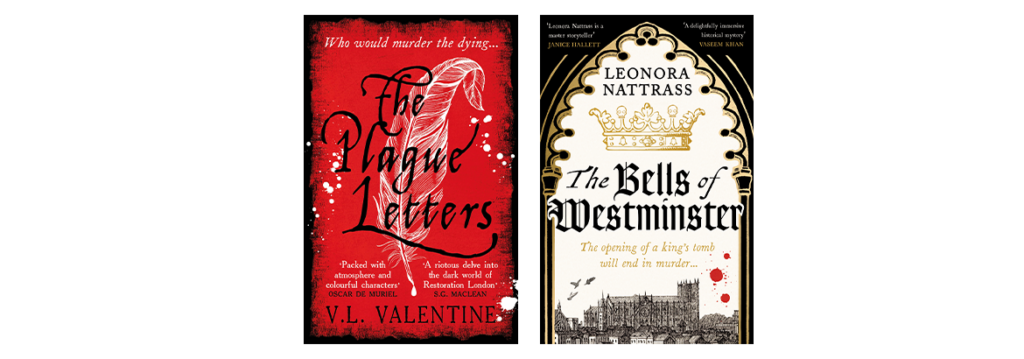
The Plague Letters by V.L. Valentine
London, 1665. Hidden within the growing pile of corpses in his churchyard, Rector Symon Patrick discovers a victim of the pestilence unlike any he has seen before. Someone is performing terrible experiments upon the dying, hiding their bodies amongst the hundreds that fill the death carts. Whoever it is will not stop, and has no mercy… ‘A riotous delve into the dark medical world of Restoration London’ S.G. MacLean
The Bells of Westminster by Leonora Nattrass
London, 1774. Susan Bell spends her days within the confines of Westminster Abbey, one of many who live in the grounds of the ancient building. Life at the abbey is uneventful, until a letter from the king arrives, demanding to open the tomb of Edward I. A ghostly figure, a murder and a missing corpse soon cause panic at the abbey, and Susan has no choice but to investigate. ‘A wonderfully clever historical novelist’ Daily Telegraph

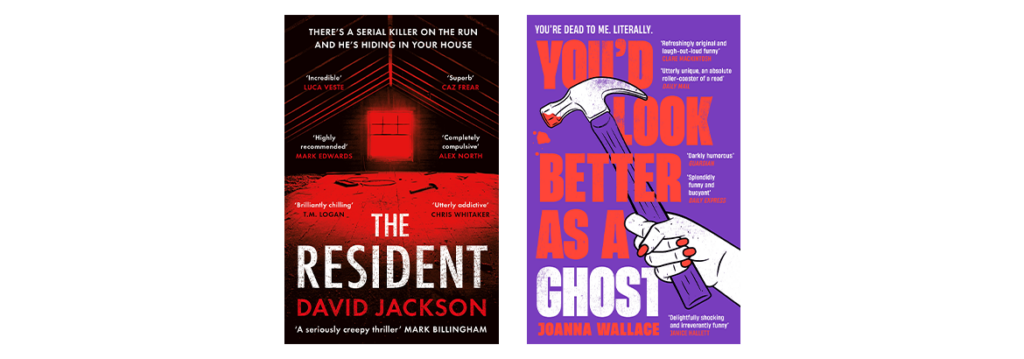
The Resident by David Jackson
There’s a serial killer on the run and he’s hiding in your house. The one thing that Thomas enjoys even more than killing is playing games with his victims – the lonely old woman, the bickering couple, the tempting young newlyweds. And his new neighbours have more than enough dark secrets to make this game his best one yet… ‘A seriously creepy thriller’ Mark Billingham
You’d Look Better as a Ghost by Joanna Wallace
It’s not sensible to tangle with a serial killer, even one who is distracted by attending a weekly bereavement support group and trying to get her art career off the ground. Claire will do anything to keep her secret hidden. Let the games begin… ‘Utterly unique, an absolute rollercoaster of a read’ Daily Mail

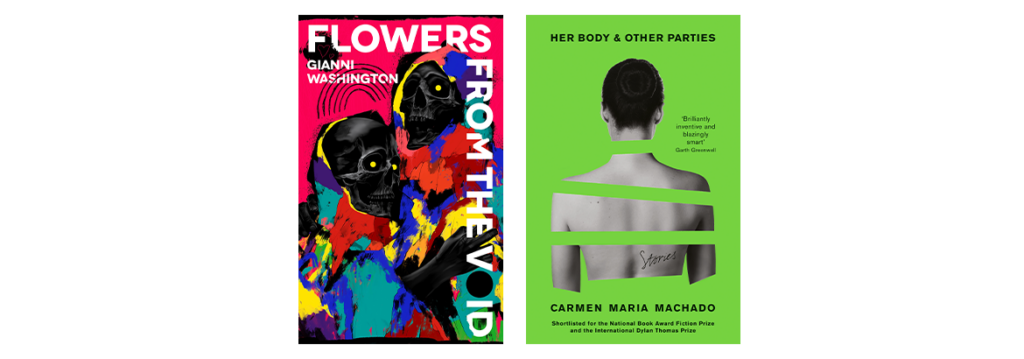
Flowers From the Void by Gianni Washington
Addictively strange and disturbing, Flowers From the Void is a collection of 13 delectably uncanny tales. A reaper readies herself for her next gruesome assignment and a bereaved African witch prepares for a showdown with a rigidly traditional white Salem coven while an outcast teenage boy is lured into a pact with a schoolfriend that will cost him far more than he ever imagined. ‘Brilliantly unsettling and unsettlingly brilliant’ Ellery Lloyd
Her Body & Other Parties Carmen Maria Machado
In her provocative debut collection, Carmen Maria Machado demolishes the borders between magical realism and science fiction, comedy and horror, fantasy and fabulism. A wife refuses her husband’s entreaties to remove the mysterious green ribbon from around her neck. A salesclerk in a mall makes a horrifying discovery about a store’s dresses. One woman’s surgery-induced weight loss results in an unwanted house guest. A dark, shimmering slice into womanhood, both wicked and exquisite. ‘It’s a wild thing, this book, covered in sequins and scales, blazing’ The New York Times



